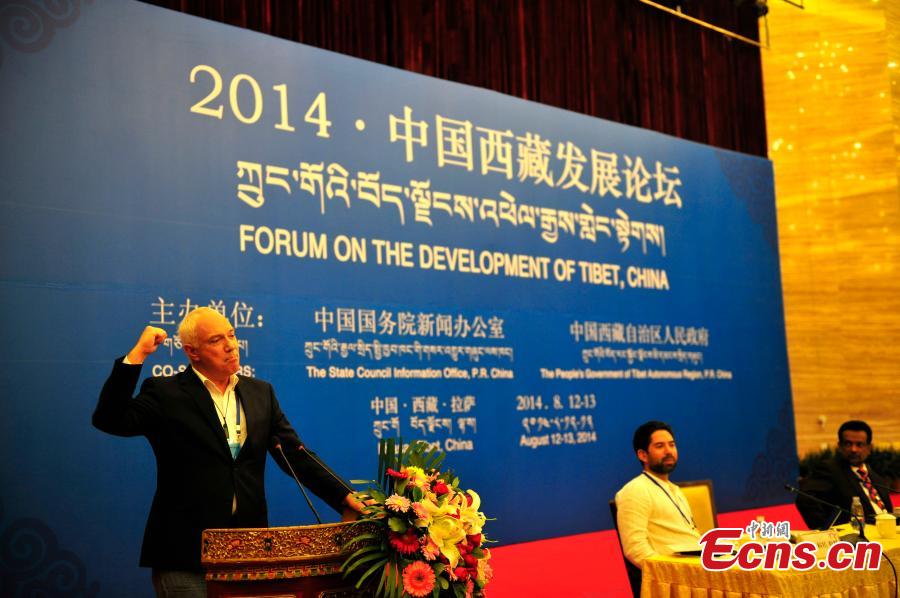Rights group says Chinese police open fire on Tibetan protesters
[Reuters] BEIJING, Aug 14: Chinese police have opened fire on Tibetan demonstrators in southwestern China, wounding 10 people, after the Tibetans protested against the detention of a respected village leader, a Tibetan rights group said.
The crackdown in the Ganzi prefecture of Sichuan province, a flashpoint for Tibetan protests against Chinese rule, underscores simmering tensions between Tibetans and the Chinese authorities.
The UK-based International Campaign for Tibet (ICT) group, citing several Tibetan sources in exile, said late on Wednesday the area “is now under tight control, with local Tibetans including the elderly and children subject to interrogation”.
Photographs that circulated on social media showed Tibetans with “serious wounds on the head and torso” after the incident, the ICT said.
Human rights activists say China tramples on religious freedom and culture in Tibet, which it has ruled with an iron fist since People’s Liberation Army troops “peacefully liberated” the region in 1950.
China rejects such criticism, saying its rule ended serfdom and brought development to a backward, poverty-stricken region. Tibet remains tightly controlled and foreign journalists are largely banned from visiting, making it very difficult to verify independently such reports of unrest.
The ICT said Tibetans had gathered to protest after the village leader, identified as Wangdak, was taken from his home in the middle of the night on Monday or Tuesday and detained.
According to the report, Wangdak had expressed his support for a traditional gathering at the start of a horse festival, in which Tibetans burn incense and make prayer offerings, after it appeared that official restrictions were likely.
The government in Ganzi could not be reached for comment.
Ganzi has seen some of the most violent clashes between Tibetans and Chinese authorities. According to the ICT, two Tibetans were shot in the head and at least eight others seriously wounded after police opened fire on unarmed Tibetans who had gathered to mark the Dalai Lama’s birthday last year.
The Dalai Lama, Tibet’s spiritual leader, fled to India after a failed uprising against Chinese rule in 1959.
Tibetan parts of China erupted in anti-Chinese violence in 2008. Since then, 131 Tibetans have set themselves alight in protest against Chinese rule, mainly in heavily Tibetan areas of Sichuan, Gansu and Qinghai provinces rather than in what China terms the Tibet Autonomous Region.
Most of those who set themselves on fire have died.

